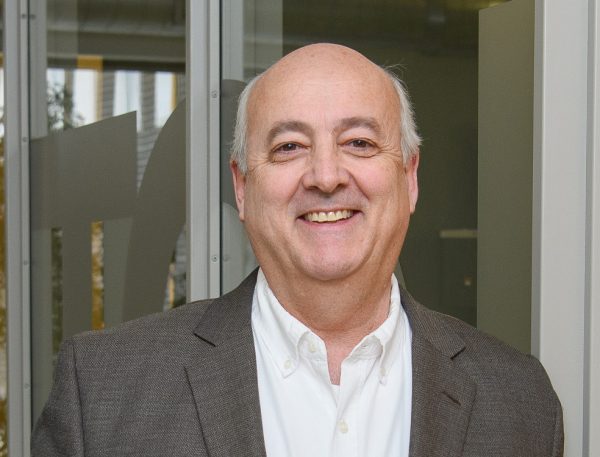Get our email updates
Stay up-to-date on the companies, people and issues that impact businesses in Syracuse, Central New York and beyond.
What's New
Upcoming Events
CNYBJ Job Board

Tom Kinslow has been promoted to associate at HOLT Architects. He has been a practicing architect since 1978 and brings his extensive knowledge to his

The Trust Gap You Didn’t Know You Had If you ask most business owners whether they provide strong benefits, you’ll get a confident “yes.” They

Catherine Blakemore has been promoted to principal associate at HOLT Architects. She has a passion for creating spaces that are both inspiring and functional. Blakemore

Kelly Maher has been promoted to the position of principal at HOLT Architects. She joins the firm’s existing principals — Paul Levesque, Steve Hugo, and

Johnson City YMCA to use $1.2 million state grant to renovate swimming pool
JOHNSON CITY, N.Y. — The West Family Branch YMCA will use $1.2 million in state funding to renovate the branch’s pool to improve activities that

Crews complete work on Binghamton’s Murray Street railroad bridge project
BINGHAMTON, N.Y. — Murray Street in Binghamton has reopened to traffic following the completion of a major project to rehabilitate the railroad bridges between Clinton

SU women’s basketball coach to speak at CenterState CEO Economic Champions event
SYRACUSE, N.Y. — Syracuse University women’s basketball coach Felisha Legette-Jack will be the keynote speaker at CenterState CEO’s annual Economic Champions event on Oct. 29. It’s scheduled from 11 a.m.-1:30 p.m. at the Nicholas J. Pirro Convention Center at Oncenter. Legette-Jack, who also played for and graduated from SU, is a graduate of the Syracuse
Get Instant Access to This Article
Become a Central New York Business Journal subscriber and get immediate access to all of our subscriber-only content and much more.
- Critical Central New York business news and analysis updated daily.
- Immediate access to all subscriber-only content on our website.
- Get a year’s worth of the Print Edition of The Central New York Business Journal.
- Special Feature Publications such as the Book of Lists and Revitalize Greater Binghamton, Mohawk Valley, and Syracuse Magazines
Click here to purchase a paywall bypass link for this article.
SYRACUSE, N.Y. — Syracuse University women’s basketball coach Felisha Legette-Jack will be the keynote speaker at CenterState CEO’s annual Economic Champions event on Oct. 29.
It’s scheduled from 11 a.m.-1:30 p.m. at the Nicholas J. Pirro Convention Center at Oncenter.
Legette-Jack, who also played for and graduated from SU, is a graduate of the Syracuse City School District.
She guided the Orange women’s basketball team to back-to-back 20-win seasons in her first two years and made a postseason tournament both seasons. The team didn’t qualify the post season during the 2024-25 season.
CenterState CEO’s Economic Champions event acknowledges hundreds of businesses and organizations that are contributing to the growth of the Central New York economy. The contributions include new jobs, new business openings, expansions and investments, and company milestones.
During the event, Legette-Jack will share her own personal journey of recovery and rebuilding, and how it mirrors Syracuse’s current trajectory.
“I knew the city as a kid, came back for a time as an assistant head coach, and now, after twenty-two years away, I feel blessed to finally be home again,” Legette-Jack said in the CenterState CEO announcement. “In many ways, my own path of growth and recovery runs alongside Syracuse’s story. I’ve seen the loss of businesses and industry, but I also see the exciting possibilities that are ahead for our community. I see hundreds of businesses preparing to embrace the future of My City — Our City, and I’m simply here to celebrate that future with you.”
“Central New York is built on the spirit of turning challenges into fuel for progress. At a time of new growth and possibilities for our region, it’s important to recognize the collective impact and outstanding achievements—large and small—of the business community that are the foundation of that success,” Ben Sio, acting president and CEO of CenterState CEO, said. “We’re thrilled to have Coach Jack joining us as this year’s speaker, to share her enthusiasm and lessons in resilience, recovering from setbacks and preparing for the future, particularly as we look ahead as a region and rally forward toward event greater progress.”
The event will also feature remarks from CenterState CEO President Rob Simpson, and the presentation of the 2025 Community Visionary Award. The award is presented to an organization that embodies a vision of economic opportunity and is creating a significant impact on community prosperity.

Taste of Syracuse raised more than $24,000 for two local nonprofits
SYRACUSE, N.Y. — The fundraising effort at this past June’s Taste of Syracuse event generated more than $24,000 for two local nonprofit organizations. Galaxy Media, which organizes Taste of Syracuse, on Wednesday presented checks totaling just over $12,000 to both David’s Refuge and Ronald McDonald House Charities of Central New York. The money collected for
Get Instant Access to This Article
Become a Central New York Business Journal subscriber and get immediate access to all of our subscriber-only content and much more.
- Critical Central New York business news and analysis updated daily.
- Immediate access to all subscriber-only content on our website.
- Get a year’s worth of the Print Edition of The Central New York Business Journal.
- Special Feature Publications such as the Book of Lists and Revitalize Greater Binghamton, Mohawk Valley, and Syracuse Magazines
Click here to purchase a paywall bypass link for this article.
SYRACUSE, N.Y. — The fundraising effort at this past June’s Taste of Syracuse event generated more than $24,000 for two local nonprofit organizations.
Galaxy Media, which organizes Taste of Syracuse, on Wednesday presented checks totaling just over $12,000 to both David’s Refuge and Ronald McDonald House Charities of Central New York.
The money collected for the two charities was a joint effort between two Taste of Syracuse sponsors, including The Summit Federal Credit Union and Tops Friendly Markets.
“We can’t thank our partners enough for their tremendous support of the festival and for their generosity in regard to giving back to local charities,” Carrie Wojtaszek, COO of Galaxy Events, said in the announcement.
Taste of Syracuse — described as Central New York’s biggest food and music festival — attracted an estimated 200,000 people over two days.
“Being a caregiver can be incredibly rewarding, but it also comes with physical, emotional, and financial challenges. We are thrilled that we were able to highlight the work of these two organizations that do so much to support families and caregivers in Central New York,” Twanda Christensen, VP of marketing and community engagement for The Summit Federal Credit Union, said.
“Every year, we are overwhelmed by the generosity of our community and grateful for their willingness to give back to those in need,” Courtney Mailhot, community relations manager of Tops Friendly Markets, added. “Being able to shine a light on these two amazing organizations, who do so much for our neighbors each and every day, while helping to raise much-needed funds for their cause, truly embodies our Neighbors Helping Neighbors philosophy.”

Syracuse STEAM High School opens to first class of students
SYRACUSE, N.Y. — Freshman students began their studies at the new Syracuse STEAM High School on Wednesday after local officials held a grand-opening event on

State funding awarded to farm and food businesses for equipment, infrastructure improvements
ALBANY, N.Y. — Farms, food processors, and distributors in Central New York, Mohawk Valley, Southern Tier, and the North Country are among 69 across New
Get our email updates
Stay up-to-date on the companies, people and issues that impact businesses in Syracuse, Central New York and beyond.
